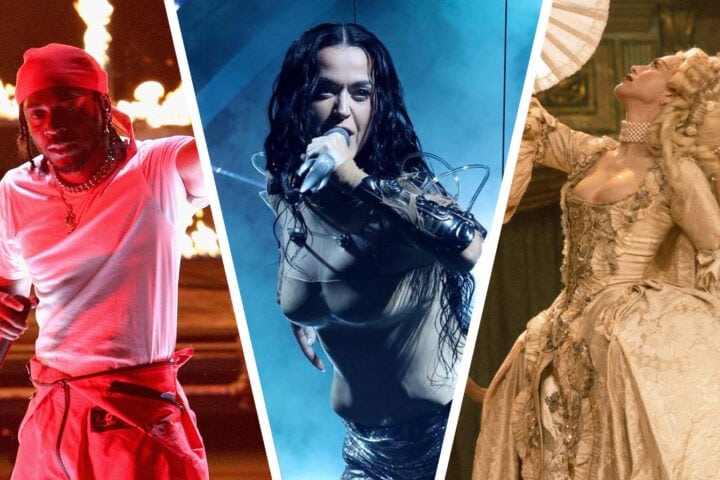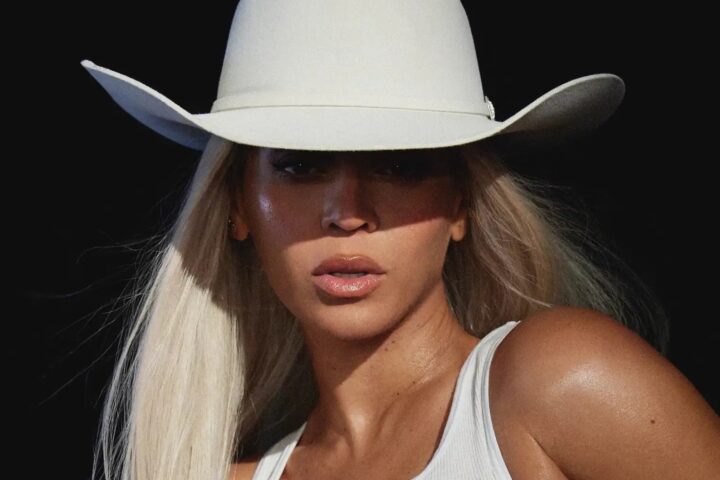Beyoncé’s Cowboy Carter is a landmark provocation that dares the country music establishment to look itself in the eye. Nashville has spent decades marginalizing Black women like Linda Martell and Rhiannon Giddens, and outright ignoring the likes of Brittney Spencer, Tiera Kennedy, and Reyna Roberts. Beyoncé, inspired at least partially by the ugly fallout from her appearance alongside the Chicks at the CMAs in 2016, is now playing a game of chicken with Music Row. Are they really going to ignore one of the most prominent Black artists of the last 20 years when she comes to the gates of their white picket fences? And, if so, how are they going to reconcile that with their insistence that of course we aren’t racist with the fact that Beyoncé has proven that she knows exactly what she’s doing and why.
Every choice Beyoncé has made on Cowboy Carter betrays a deep understanding of the genre’s past and present forms and how she’s uniquely capable of incorporating that genre know-how into her own unique artistic vision. Even when the production doesn’t sound overtly country, important genre signifiers or narrative tropes lay the foundation for the songwriting.
That takes the form of a recasting of early touring gigs in support of SWV and Dru Hill as adventures on a stagecoach (“16 Carriages”), a traditional murder ballad transformed into an operatic fantasy of revenge (“Daughter”), a gunslinger’s firing rounds at a rival’s feet and ordering them to dance used as a call to the dance floor (“Riiverdance”), and a bounty hunter’s search for an outlaw used as a framing device for self-aggrandizement (“Tyrant”). It isn’t just that Beyoncé has availed herself of these tropes, but that she’s placed them within the context of her own “regal era” persona in a way that deepens her mystique.
Beyoncé’s specific points of reference are no less purposeful. That she invited Spencer, Kennedy, Roberts, and Tanner Adell to sing, gorgeously, on a cover of the Beatles’s “Blackbird,” a song mythologized as having been written in response to the Little Rock Nine, speaks to a recognition that institutional racism is hardly unique to country music.
Elsewhere, a reworking of Dolly Parton’s “Jolene” subverts the ways country music has long expected women to behave: That Beyoncé ends the song by choosing to stand by her man is presented as a defiant declaration of sexual agency. On “Ameriican Requiem,” the thesis statement that opens the album, she interpolates the melody from Buffalo Springfield’s “For What It’s Worth,” demanding that her audience look at what’s been going down for decades: “The grandbaby of a moonshine man, Gadsden, Alabama…If that ain’t country/Tell me what is.”
Beyoncé has never been subtle, but not all of her references are so on-the-nose here. The standout “Alligator Tears” leans hard into its sultry, from-the-delta vibe: In both form and content, it’s akin to a Bobbie Gentry song, carrying a real complexity beneath its sexiness. And “Levii Jeans” nods to the melody and 1980s-era pop-country of Mel McDaniel’s “Baby’s Got Her Blue Jeans On,” with a take on the male gaze that’s both playful and horny.
As text, Cowboy Carter is instructive and essential. As popular music, it’s no less successful. “Texas Hold ‘Em” is already a deserved hit, while the audacious “Ya Ya,” “Tyrant,” and “Riiverdance” are all equally radio-ready. “Daughter” and “Spaghettii” capture Beyoncé’s generational talent as a performer as brilliantly as anything she’s ever committed to record. The shorter interstitials (“My Rose,” “Flamenco,” “Desert Eagle”) could have been edited for concision and coherence, but the album’s sprawl speaks to the singer’s ambition and willingness to get messy.
That messiness—and an embrace of corn-pone humor that’s been part of her brand since Destiny’s Child—is indicative of Beyoncé’s stated intention to take a transformative approach to genre. While the country roots here run deep—no matter how loudly the usual gatekeepers may protest to the contrary—and intertwine with her R&B roots, perhaps Cowboy Carter reclaims something other than country music. It’s an album of Americana not in the banal, produced-by-Dave Cobb sense, but in the truest senses of narrative and musical form.
Since 2001, we've brought you uncompromising, candid takes on the world of film, music, television, video games, theater, and more. Independently owned and operated publications like Slant have been hit hard in recent years, but we’re committed to keeping our content free and accessible—meaning no paywalls or fees.
If you like what we do, please consider subscribing to our Patreon or making a donation.






An absolute crock of shit. An album that runs on a phony narrative. Complete with the most over performed songs in any singing competition (blackbird and Jolene), and an incredibly thin connection to country music. This is a pop/r&b album with a few banjos thrown in and some lyrics about whiskey and rodeos. Also, why the dig at Dave Cobb at the end? We all know Beyonce never leaves her castle and could care less about the music and history and will do anything for power and of course, Grammys.
How much money has Slant received for this piece of music propaganda? This album is borderline unlistenable.
more than you made being mad and making up shit about it.